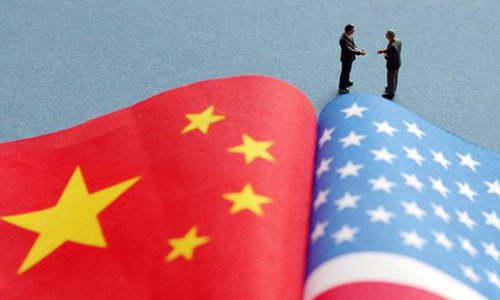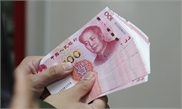SOURCE / INDUSTRIES
US to stop calling China currency manipulator as yuan edges up: experts

Chinese and US trade officials make attempt at striking a trade deal to defuse an increasingly bruising trade war that has rattled global markets and presented mounting challenges to both economies. Photo: VCG
The US is likely to retract its labeling of China as a currency manipulator soon as the yuan has demonstrated an evident appreciation in recent days and the countries move to settle their trade dispute, exchange rate experts said on Thursday."The US has been calling China a currency manipulator as an excuse to launch protectionist measures against China. But this label was obviously ridiculous and was even opposed by many US scholars," said Zhou Yu, director of the Research Center of International Finance at the Shanghai Academy of Social Sciences.
In August 2019, the US Treasury officially named China as a "currency manipulator" following a sharp fall in the value of the yuan against the dollar, accusing China of deliberately depreciating its currency in order to offset the negative impact of the extra tariffs the US piled on Chinese goods amid the China-US trade war.
Zhou said that such an accusation was ungrounded as the yuan's depreciation then was natural market reaction to the Trump administration's tariff hikes against China. In particular, the offshore yuan, free of any government supervision, had depreciated much faster than the onshore yuan.
"Now that China and the US are moving to sign a trade deal, there's no 'need' for the US to keep the 'currency manipulator' label to back its sanction measures against China," Zhou said.
Besides, the US would be lying through its teeth if it goes on calling China a currency manipulator as the yuan has been spiraling up in recent days.
On Thursday morning, the onshore yuan surged above 6.93 against the greenback, its highest level since last October. By 4:30 pm, it stood at 6.9316 against the dollar, up by about 0.2044 percent.
Onshore yuan edged up by 0.44 percent against the US dollar on Tuesday, and down 0.01 percent on Wednesday.
Offshore yuan was up 0.07 percent against the dollar to 6.9317 by 5:19 pm.
The yuan's central parity rate against the dollar stood at 6.9497 on Thursday, down 47 basis points.
According to Zhou, the appreciating trend has been due to the easing of China-US trade friction, and the currency has further room to inch up as the two countries are poised to sign the phase one trade deal soon. However, China's economic situation will also add pressure on the yuan.
"Trade war easing and economic pressure will both exert influence on the yuan but in opposite directions...so overall, I think the yuan will neither be up or down too sharply for the whole year," he said.
Dong Dengxin, director of the Finance and Securities Institute at Wuhan University of Science and Technology, said that China's lifting of restrictions on foreign financial institutions' shareholding ratio may attract foreign capital into China and change China's foreign exchange structure, which will also support the yuan's appreciation in 2020, he said.


